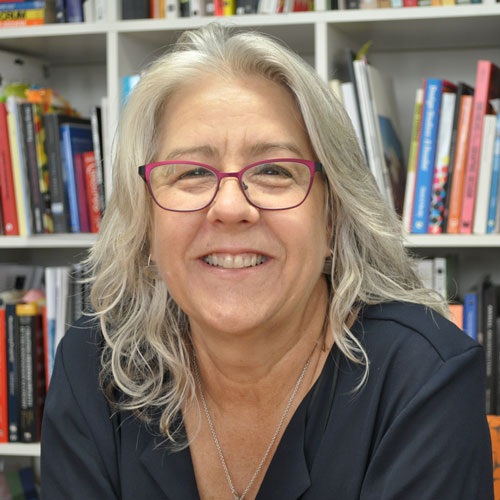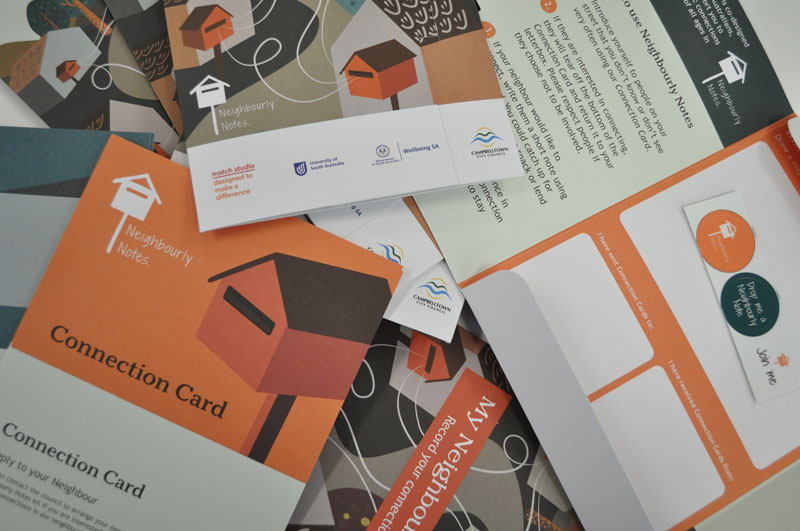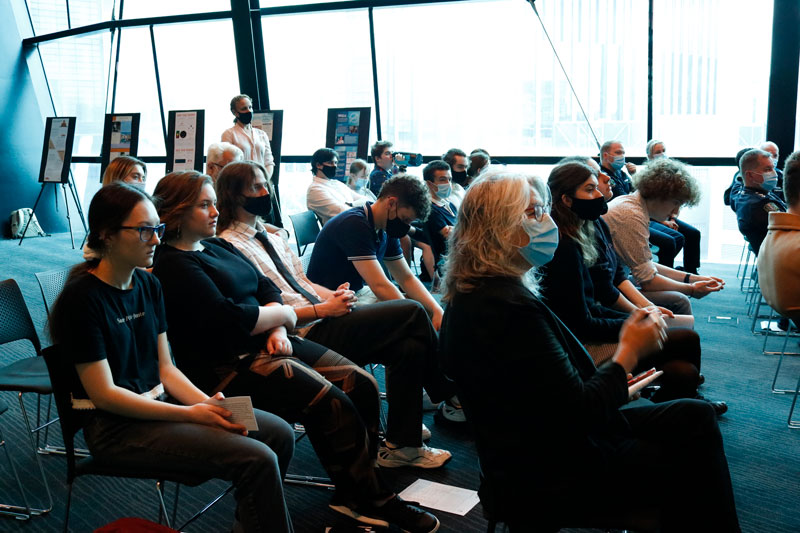How UniSA designers are bringing together the best skills to solve some of society’s most intractable problems.
 Long before the current clamour for universities to deliver workplace-ready graduates, Match Studio at the University of South Australia was working with students to deliver to clients creative, design-led solutions to some of society’s most intractable problems.
Long before the current clamour for universities to deliver workplace-ready graduates, Match Studio at the University of South Australia was working with students to deliver to clients creative, design-led solutions to some of society’s most intractable problems.
“In the workplace, it’s very rare, unless you’re perhaps in a research job, to mix with people from lots of different disciplines,” says Founding Director Dr Jane Andrew.
“Match Studio is addressing that, enabling students to work on a challenge delivered by a client. Sometimes they can be quite broad, other times quite specific challenges.
“We provide a structured project framework that enables those teams of students with different skill-sets to address that challenge.”
Match’s origins lie more than 10 years ago when Andrew was asked by the School of Art, Architecture and Design to develop a way the school could work more closely with business to develop an alternative to internships and placements that were hard to secure for all of the students.

“The intention was to provide opportunities for students to have a work-like experience in an environment, such as Adelaide, where there are a few opportunities for placements, especially in the design professions,” says Jane.
Jane was chosen due to her experience running an industry association for artists and designers and her PhD, which focused on the creative industries and how governments conceptualise their value within the economy.
It was also a time when the South Australian Government’s rhetoric was around how creativity and innovation would be the key drivers of the state’s economic success.
“However, they conceptualised creativity and innovation, designers were often brought in the last minute,” says Jane.
“The visual arts or the performing arts were seen as the garland on the festival state. You roll them out, you fund them just to do these events and that’s it.
“But what about investment in creative capacity outside of festival seasons?” Jane asks.
Her plan was an attempt to develop that different way of thinking about how we embed creative skills development and creative capacity across our economy.
The lineage to Match Studio is clear, although it’s not always easy to describe in a nutshell what it does.
“Essentially, it’s a space where teams of students, researchers, clients, industry and academics can come together to work on a challenge,” says Jane. “And we provide the scaffold through design thinking, design management methodologies, to enable those ideas to come out, rather than spending time talking about issues and ideas and not moving forward.”
But it is also about helping students develop interdisciplinary skills and the so-called “work-ready” skills that employers, no matter the field or industry, are crying out for graduates to have.
One way to develop the skills is through “Match Tournament Interdisciplinary Design Sprint”, where teams of students from disparate fields come together to compete in solving practical problems.
A recent Match Tournament, for example, worked with Wellbeing SA and the Fay Fuller Foundation, a private philanthropic organisation that helps communities respond to complex challenges.
“The meta challenge that they introduced to us was to help communities develop resilience in times of trauma,” says Andrew.
Jane Andrew

Image credit: Jordan Kotowski (Bachelor of Contemporary Art)
That challenge brought together nine UniSA courses — communication design, product design, architecture, urban and regional planning, data science, business, social advocacy, health service management, and conservation psychology — a diverse spread of not just disciplines and industries but also of the university’s academic offerings.
Each of these courses was briefed on the meta challenge and it was up to the academics who ran those courses how they assessed and delivered this challenge in a 12-week timeframe. During that time, Match Studio staff delivered workshops about how to undertake research as a team and, more importantly, how to understand a problem within a systems perspective.
“We are asking them to think about the economic environmental policy, bigger picture world events that are influencing why this problem exists, and then to ask themselves, ‘so how do you then bring that information in through the research that you're doing within your own discipline and develop ideas with people from other disciplines? How do you develop those ideas into compelling and feasible proposals?’” “It's not trying to burst their bubble and burst their imaginations and creative bent, but to say, ‘hey, let's bring this down to a quite practical thing’. says Jane.
The range of projects and problems that Match has worked on is impressive. They include working with researchers developing a tool to support mothers from pregnancy to post-birth monitor their mood so they could reach out to support networks before developing postpartum depression.
In that project, Match with Professor Lois McKellar invited mothers to a co-design workshop to inform the design from a potential users perspective. The outcome was an app that incorporated the mood tool, with additional features and components that the mothers in the workshops indicated were essential.
Match has worked with Maggie Beer to support her Foundation inspire aged care homes to redesign their dining experience for residents, and with Adelaide Women’s Prison in a Design and Make pilot — a “for-love” project Jane says — that gave prisoners an opportunity to design products that they produce within prison based manufacturing workshops.
“Any of the projects that we do in Match, pulls in all that knowledge, ideas, enthusiasm, and lets people develop ideas, to understand the world within which they are working and how they might make an influence,” says Jane.
Profile of Match Studio written by Bill Condie - bill@billcondie.net 0450 952 365
Contact matchstudio@unisa.edu.au for any further enquiries | Follow @matchstudio on Facebook and Instagram
Interested to hear more? Keen to collaborate with UniSA Creative?
Please contact CTV-Research@unisa.edu.au



